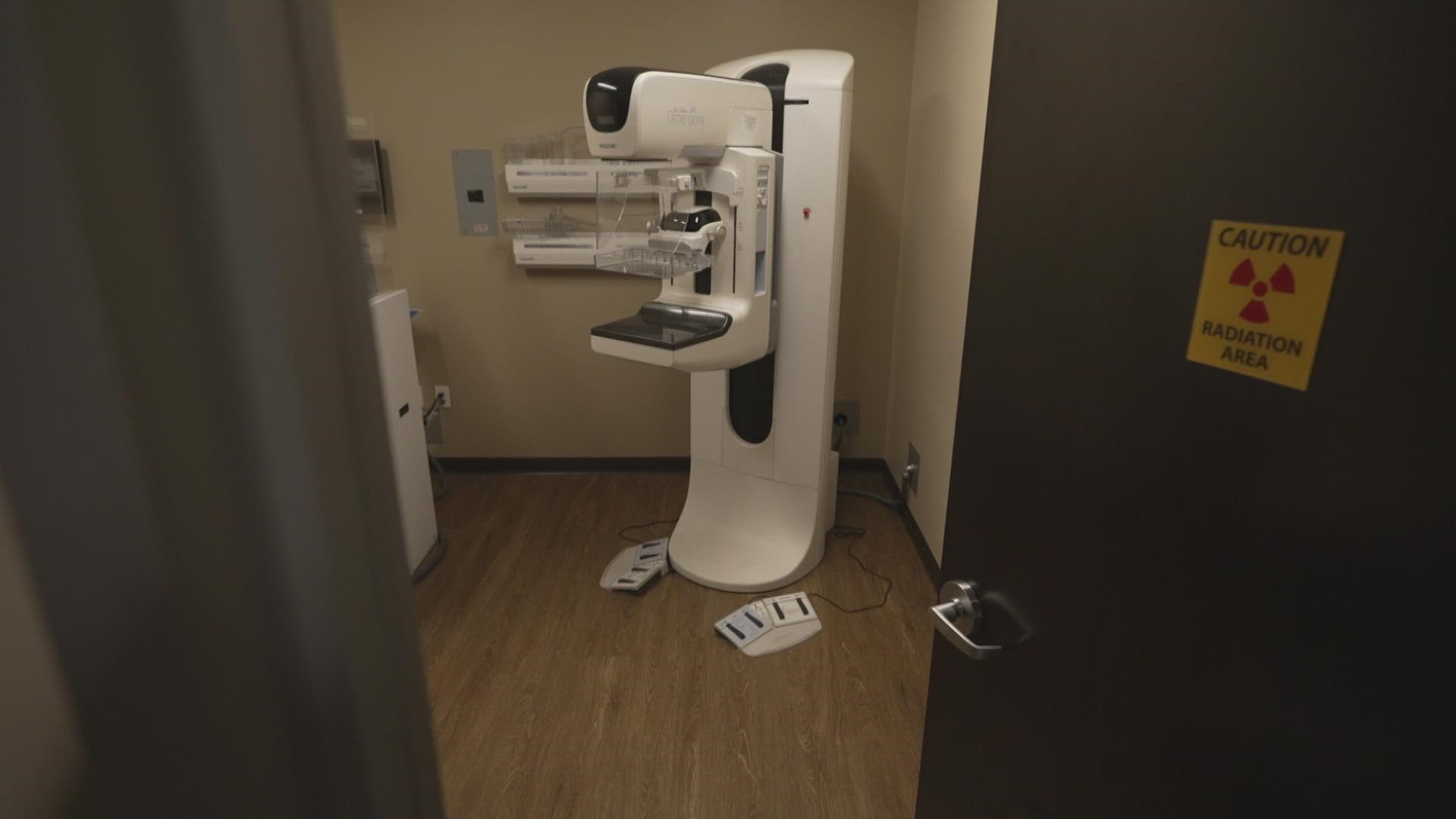DENVER — Dr. Kayla Griffith, a breast surgical oncologist, and Dr. Paige Dorn, a radiation oncologist, both work at Rose Medical Center. During the pandemic, they didn't see as many breast cancer patients, but it wasn't because there was less breast cancer. Now they are catching up with screenings, and seeing more progressed diagnoses.
(Editor’s note: This interview has been edited for context and clarity.)
9NEWS: What happened during the pandemic in terms of breast health screenings?
Griffith: It was pretty bad for a while. Even the state of Colorado, which has been a little more progressive, shut down screening mammograms.
Dorn: During the pandemic, we unfortunately did not see as many breast cancer patients as usual because screening mammography essentially halted for a number of months, and then even after reopening there was still a hesitation to return to screening for a lot of women.
Because of that shutdown, and then the hesitation, what happened?
Griffith: The diagnoses we were having were much more progressed, meaning we had to do a lot harsher surgery, more difficult surgeries, take lymph nodes out. Even after a mastectomy they would need radiation, when typically that wouldn’t be the case. Chemotherapy when that wouldn’t be the case.
Dorn: And now what we’ve seen is the catching up is resulting in patients entering with later stage disease. I think it was always there, it just waited until a screening was able to detect it, and oftentimes unfortunately a more advanced stage.
Griffith: We’re still getting people who say this was their first screening mammogram since 2019. And then they’ll say, "oh, it was the pandemic."
Why would early detection help?
Dorn: As we learn to detect cancers earlier, we can treat them earlier, and treat them with less radiation to smaller areas, which really reduces side effects. As the stage becomes more advanced, we’re required to give more extensive treatments. And that means more lengthy courses of radiation to broader areas of the body that can come along with more side effects.
What is your message today?
Dorn: I would say the number one thing is get your screening mammogram. That’s the best way to find cancer early. Breast cancer is common. It’s the most common cancer that women get in this country, and it’s the number two cancer-related cause of death as well. And by finding cancer early you can really prevent a lot of the complications, the morbidity, and the mortality associated with the disease.
Griffith: One in eight women get breast cancer, and it’s not usually the people with family histories. We say 90% of breast cancers out there have no family history at all. Get out there, get those mammograms, take care of yourself. And if you get breast cancer, we’re here for you, babe.
SUGGESTED VIDEOS: Latest from 9NEWS

